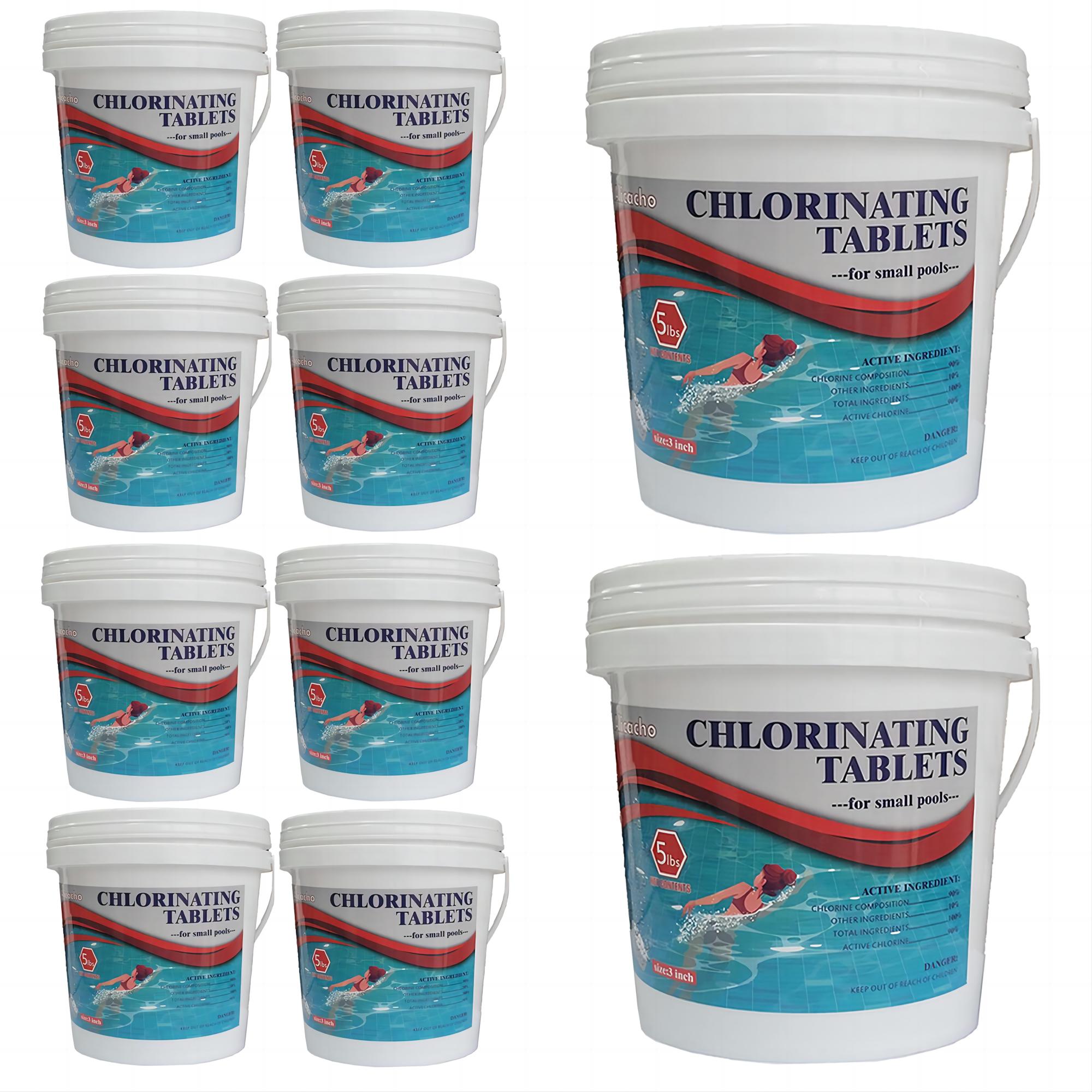When you want to achieve a clean and healthy pool, everything must be in balance. One of the important factors that you have to figure out is to know what is the ideal chlorine level for a pool. Once you have made sure that all the components are within the recommended range, obtaining a healthy and clean pool is always possible.
We are going to discuss what is the ideal chlorine level for a pool based on the type of pool you have. We are also going to have a glimpse of other factors essential to obtaining proper chlorine levels such as things that can affect chlorine levels, how chlorine can be tested, and how can chlorine levels be raised.
Part 1. What Is The Proper Chlorine Level?
For swimming pools, the ideal level of chlorine that you have to maintain is in the range between 1 ppm and 3 ppm. It should be kept at a level which is approximately 1.5 ppm to become an effective disinfectant for your pool water. Once it is in the said range or level, it can be useful to kill and fight bacteria, viruses, and pathogens, and even prevent the growth of algae.
It is needed to super chlorinate your pool water or shock it once or twice a month, but still dependent on the pool water usage, or if there are huge storms within your pool’s area. It is advised to make sure that your pH and alkalinity levels are within recommended ranges before executing pool shocking, never proceed in doing one once the range is out of the known numbers.
To give you an idea, the ideal pH range is between 7.2 and 7.8 ppm, and for the alkalinity, the range between 80 and 120 ppm must be maintained.

Part 2. Important Things To Know About Chlorine
Aside from figuring out what is the ideal chlorine level for a pool, other factors are essentially important to know about chlorine.
There are lots of factors that can affect the level of chlorine in your pool water, these factors are:
- Many bathers or having a heavy bather load.
- Excessive growth of algae.
- The pool is surrounded by lots of trees which can cause heavy debris in the future.
- Your pool is outdoors does not have a cover and is exposed to long hours of sunlight which can affect the effectiveness of chlorine.
- Your pool has very poor water circulation and filtration.
These factors can cause your chlorine content to deplete faster, hence decreasing the effects of sanitation as well. To make sure chlorine levels are met, you can conduct regular level testing using liquid reagent kits or fresh test strips. Make sure that you will use new testing kits and strips to be able to achieve valid results. Once you use those that are already contaminated or exposed to direct sunlight, inaccurate results can be obtained and testing may not help well.

Once you have tested your chlorine level and the results are low, you need to increase it immediately. You can use different chlorine products that are available in the market, some of which are trichlor, dichlor, lithium powder cal hypo granular, or liquid bleach.

If you have saltwater pools, the level of chlorine that you have to maintain is also similar to that of the regular pool which is in the range between 1 and 3 ppm. Chlorine is one of the most essential chemicals when it comes to pool water maintenance. Once it is maintained at the needed level, all the time, keeping your pool safe and healthy will always be achievable, and diseases that can be possibly obtained in pools will not just be lessened but can be diminished as well.
Part 3. FAQs
1. What is the Acceptable Chloramine Level?
For chlorine to still be effective, the level of chloramines in the pool must be 0.3 ppm or less. Once it becomes a point higher, it can cause eye irritation, and you can start smelling chlorine all over your pool. When this happens, you have to immediately take action before your pool is surrounded by lots of bathers.

2. Is it Dangerous to Have Chlorine at a High Level in Your Pools?
There can be many effects when chlorine is too high compared to the required level. Once it is above 5 ppm, bathers can start experiencing eye and skin irritation, and once the level reaches 10 ppm or higher, bathers should automatically evacuate the pool. Aside from having your hair and skin damaged, it can also have harmful effects on the pool’s equipment and physical state. It can damage vinyl liners, filter cartridges, pump seals, and even pool heaters.
3. What is the Best Chlorine Level for Stabilized Pools?
If you have stabilized pools, the ideal or best range of chlorine levels must be between 2 and 3 ppm. Stabilized pools already have cyanuric acid, which is a known conditioner, it protects chlorine from the harmful rays of the sun or ultraviolet rays. CYA does not coat or cover chlorine from the sun's rays, it just reduces its activities, particularly its vibration. And the reduced activities also reduce the kill rates of chlorine.
4. Is pH Level Connected with Chlorine Level in Pools?
Yes, once pH goes up, free chlorine reduces its ability to kill germs, bacteria, viruses, and pathogens in pools. If pH goes down, chlorine’s ability to kill contaminants in the water increases however when it comes to hot tubs or spas, pipes are most likely prone to corrosion or breaking down. It is only right to maintain pH and chlorine levels at their recommended or required ranges.



